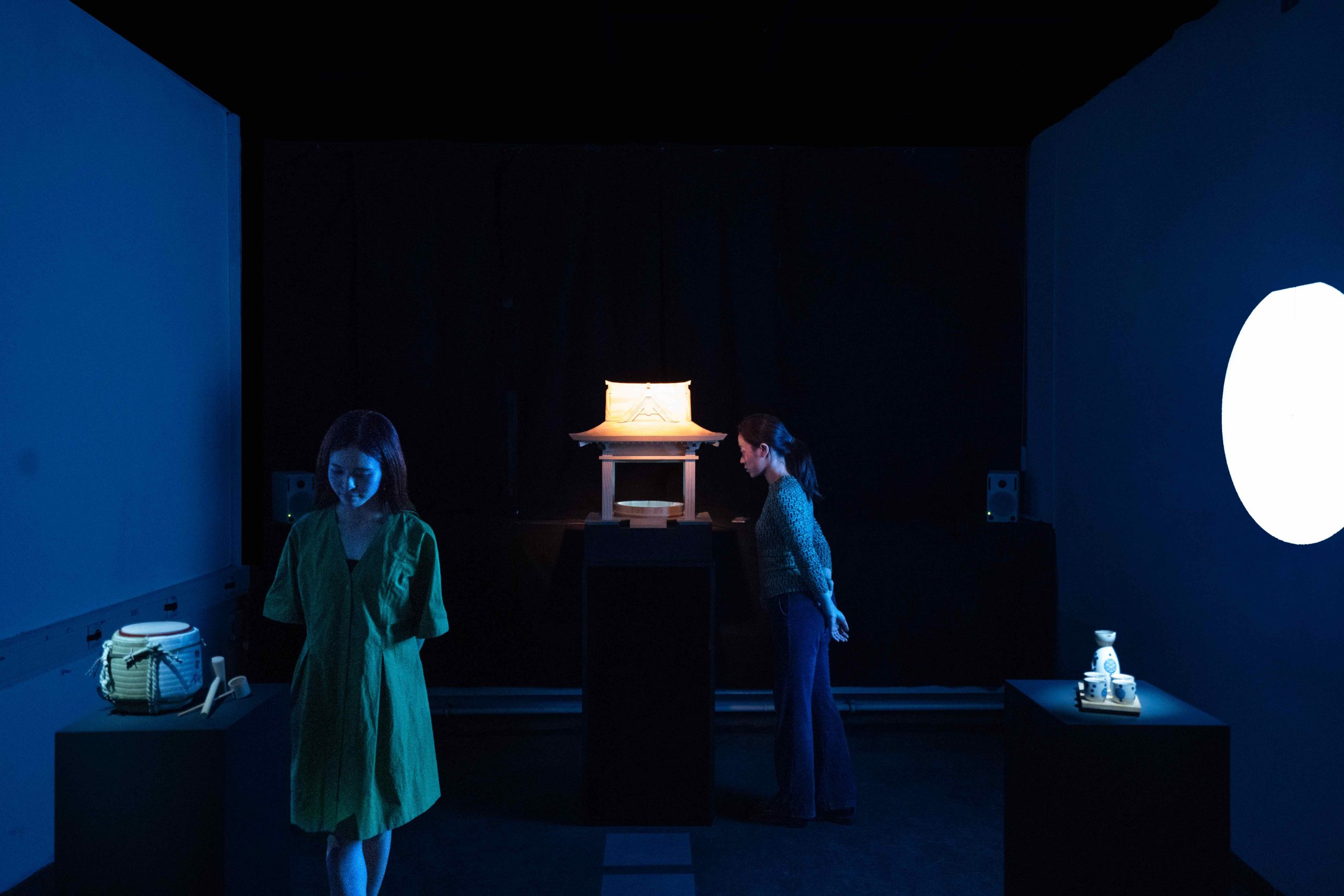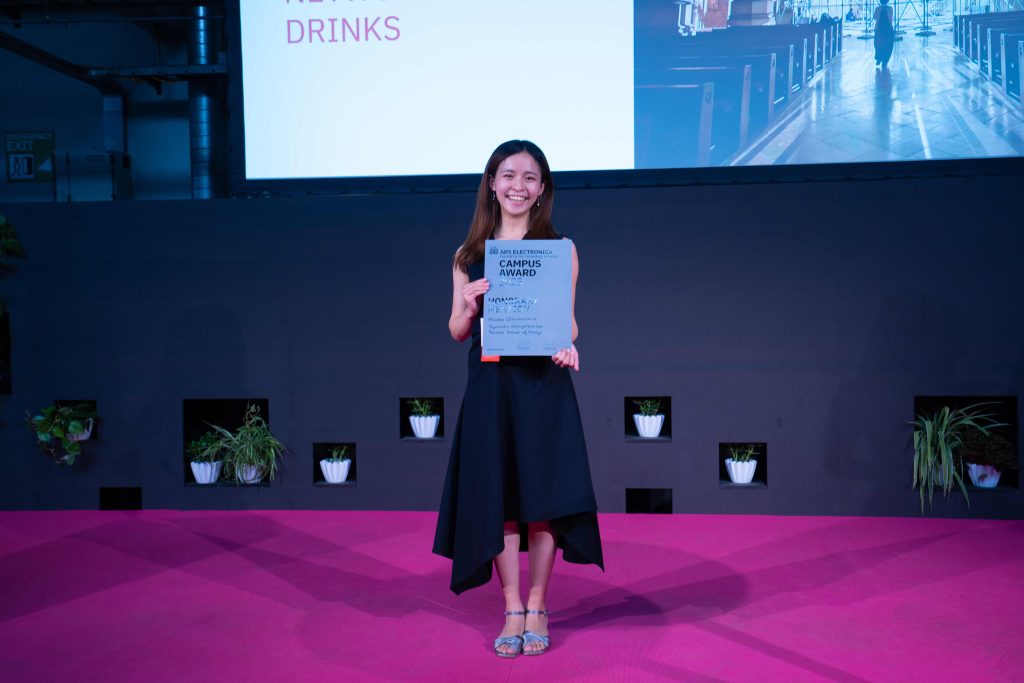
Kaori Ogawa, MFA Design and Technology ’26, Exhibited Innovative Installation at Ars Electronica Festival
The inaugural Ars Electronica Festival opened to the public in 1979, and has since grown into a prestigious and influential event where artists, scientists, developers, designers, entrepreneurs, and activists come to Linz, Austria, to address key questions about the future.
Recently, Kaori Ogawa, MFA Design and Technology ‘26, was selected to showcase “Micro Orchestrism,” at the Festival. The innovative project, developed in partnership with composer Kaito Nakahori and Harpreet Sareen, Parsons Professor of Interaction and Media Design, is an audiovisual installation that redefines creative collaboration by positioning fermenting sake yeast as musical co-composers. The work asks a profound question: who counts as a creator—the human alone, or the invisible co-workers of fermentation as well?
“Ars Electronica had been a personal milestone throughout my time at Parsons, so when I learned my project was selected I was honestly in disbelief,” shares Ogawa. “I felt very excited to share with the world a work rooted in my background, showing what becomes possible to make and perceive when technology is used in new ways, and very grateful to everyone who collaborated with and supported the project.”
Drawing from Japanese cultural traditions, Ogawa bridges ancient sake brewing practices with gagaku court music to create a living soundscape. The installation, which won an Honorary Mention at the Festival, captures the micro-bubbles created by yeast respiration during fermentation, translating these biological processes into tones from traditional gagaku instruments. This creates an evolving musical composition co-created by both human performers and microorganisms.
“In our pursuit of technological advancement, we often overlook the sophisticated biotechnologies that have sustained human cultures for millennia,” Ogawa explains. “This work suggests that the future of art-technology-society relationships might be found not only in digital innovation but in renewed attention to the living processes that precede and exceed human design.”

This year marks the first campus partnership between Ars Electronica and Parsons School of Design, thanks to the work of Sareen. Parsons joins other leading institutions at the Festival, including the University of Arts Linz, Taipei National University of the Arts, National University of Singapore (NUS), and the School of the Art Institute of Chicago (SAIC).
“Our partnership demonstrates Parsons’ commitment to fostering interdisciplinary innovation and positions our students at the forefront of contemporary media arts discourse,” shares Sareen. “The annual festival, with its long history, has seen several important creators show up in this space—our students will benefit from being part of this ecosystem, and connected to the global creative communities. Kaori’s work exemplifies the kind of thoughtful, culturally-grounded practice that addresses urgent questions about technology, ecology, and creative agency.”
Throughout her time at Parsons, Ogawa has learned to trust the power of her imagination thanks to the educational approach in the Design and Technology program that prioritizes both playfulness and rigor. Her prior experience is in economics and consulting, so initially pursuing design felt intimidating, although she has now built the skills to discuss and propose new ways of seeing things.
“A gift of Parsons is the ability to cross departments,” says Ogawa. “Working with classmates in design, anthropology, music, performance, and more has shown me how diverse tools—and generous collaboration—are essential for complex challenges. I’m grateful to be part of a community that helps each other see differently and build together.”
Looking ahead, Ogawa is building on Micro Orchestrism through her thesis project, which focuses on preserving and sharing the embodied knowledge of fermentation across cultures, with technology serving to make the experience tangible.